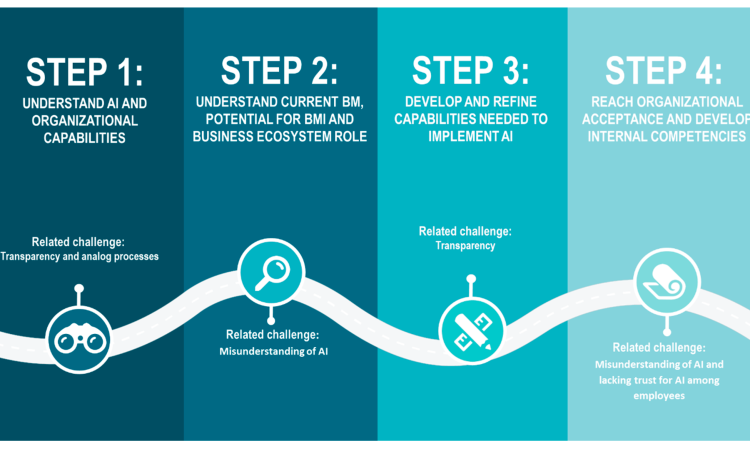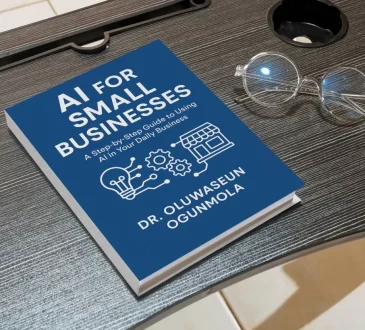
In 2025, Artificial Intelligence is no longer a futuristic idea whispered in boardrooms; it is now a central force transforming how businesses operate, compete, and grow. From small startups to multinational corporations, companies across industries are leveraging AI to streamline processes, boost efficiency, and deliver better customer experiences. What once seemed like a luxury available only to tech giants has now become an essential tool for businesses seeking real, measurable results.
This article explores how AI is reshaping the world of business through real case studies, proven outcomes, and the lessons companies are learning as they integrate intelligent automation into their operations.
AI for Customer Service: A Telecom Success Story
One of the most noticeable applications of AI has been in customer service, where chatbots and virtual assistants are transforming the way companies interact with their audience. A major telecom provider implemented an AI-powered chatbot designed to handle frequently asked questions, troubleshoot network issues, and assist customers with billing queries.
Before adopting AI, the company struggled with overwhelming call volumes and long waiting times. After integrating the AI system, customer response time decreased by nearly 60 percent. More importantly, customer satisfaction scores significantly improved.
Interestingly, the AI system did more than just answer queries. It analyzed patterns in customer behavior, allowing the company to identify recurring issues and proactively address them. This shift from reactive to proactive support helped reduce customer complaints and build stronger loyalty. The telecom company reported saving millions in operational costs while delivering faster and more consistent service.
Retail Transformation: How AI Boosted Sales for a Fashion Brand
In retail, AI has become a major driver of personalization, inventory optimization, and predictive analytics. A mid-sized global fashion brand offers a compelling example. The company integrated AI into its e-commerce platform to personalize product recommendations for online shoppers.
Previously, customers were shown generic products, often leading to low engagement and high cart abandonment rates. The AI system, however, analyzed buying history, browsing patterns, and product interactions to make tailored suggestions for each individual shopper.
The results were dramatic. Within six months, the company saw a 30 percent increase in average order value and a significant rise in repeat purchases.
But the benefits didn’t stop at the customer-facing interface. The fashion brand also used AI to optimize inventory decisions by predicting which items would be in demand for upcoming seasons. This shift resulted in a substantial reduction in unsold stock and improved supply chain efficiency.
For a company operating in a highly competitive industry, AI provided a double advantage: enhanced customer satisfaction and smarter backend operations.
Financial Services: Fraud Detection and Risk Reduction
The financial sector has been one of the earliest adopters of AI, using it to enhance security and reduce fraud. One noteworthy example comes from a leading digital payments company that implemented AI algorithms to flag unusual transactions in real time.
Traditional fraud detection systems relied heavily on human review and fixed rules. However, fraudsters quickly found ways to exploit patterns that were predictable. The introduction of AI changed this dynamic. The new system learned from billions of past transactions and continuously updated itself to spot anomalies.
The results were exceptional. Fraudulent activities dropped by nearly 40 percent within the first year. The company also reduced its dependence on manual reviews, allowing employees to focus on complex cases requiring human judgment.
Beyond fraud prevention, the company used AI to improve its credit risk assessment process. Rather than relying solely on traditional financial metrics, AI analyzed non-traditional data points such as spending patterns, repayment behavior, and transaction timelines. This led to more accurate predictions and reduced the risk of loan defaults.
Manufacturing Efficiency: AI in Predictive Maintenance
In the manufacturing sector, downtime can cost millions. A large automotive components manufacturer turned to AI to solve its persistent problem of unexpected machine failures. The company installed sensors on key machinery and connected them to an AI-powered predictive maintenance platform.
The system analyzed vibration, temperature, and pressure data to predict when a machine was likely to malfunction. Instead of waiting for breakdowns, the company could schedule maintenance ahead of time.
This one shift resulted in a 45 percent reduction in unplanned downtime and improved overall production output. The manufacturer also extended the lifespan of critical machinery by addressing small issues before they became major problems.
Employees, who initially feared automation would replace their roles, soon discovered that AI made their work easier and safer. Skilled technicians could now focus on high-level tasks rather than routine inspections.
Healthcare Providers See Better Diagnostics
Healthcare organizations have also turned to AI to improve diagnostics and streamline patient care. A leading hospital chain adopted an AI system that analyzed medical images to detect early signs of diseases such as cancer and heart conditions.
Compared to manual analysis, the AI system examined images faster and flagged abnormalities with remarkable accuracy. Doctors emphasized that AI didn’t replace them; instead, it served as an additional layer of support.
The impact was profound. Early detection rates increased, treatment plans improved, and patient outcomes were significantly better. The hospital also benefited operationally by reducing the backlog of imaging scans and improving workflow efficiency.
Human Resources: Smarter Hiring and Employee Engagement
AI is also transforming HR departments. A multinational IT company used AI to enhance its hiring process by scanning thousands of job applications and identifying candidates who matched both skill and culture requirements.
The AI system filtered applications in minutes, a task that previously took human recruiters several days. Recruiters could then focus on interviewing shortlisted candidates rather than sifting through large volumes of resumes.
Moreover, the company implemented AI tools to measure employee engagement and predict turnover. By analyzing performance data and feedback patterns, the system identified employees who were at risk of leaving and suggested interventions. This proactive approach helped reduce attrition and build a more engaged workforce.
The Bigger Picture: What These Case Studies Tell Us
Across all these case studies, a few universal themes emerge. AI is not just a tool but a strategic asset. Companies that embrace AI see improvements in:
- Efficiency and cost savings
- Customer satisfaction
- Decision-making accuracy
- Employee productivity
- Innovation and competitive advantage
However, successful AI adoption requires more than technology. It demands skilled talent, ethical guidelines, clear strategies, and the willingness to evolve with changing business landscapes.
Conclusion
Artificial Intelligence is no longer optional in the business world; it is a catalyst driving measurable progress across industries. From customer service to manufacturing, retail to finance, companies using AI have demonstrated substantial improvements in performance, efficiency, and customer experience. These case studies clearly show that businesses that integrate AI thoughtfully and strategically are better equipped to thrive in an increasingly competitive global market




